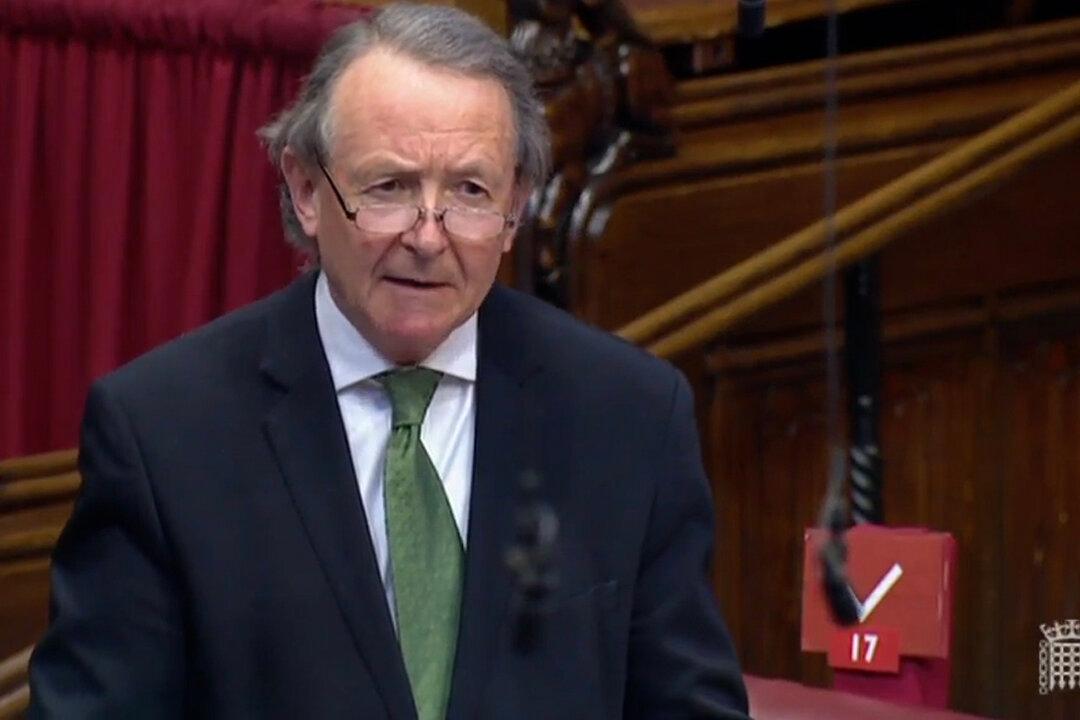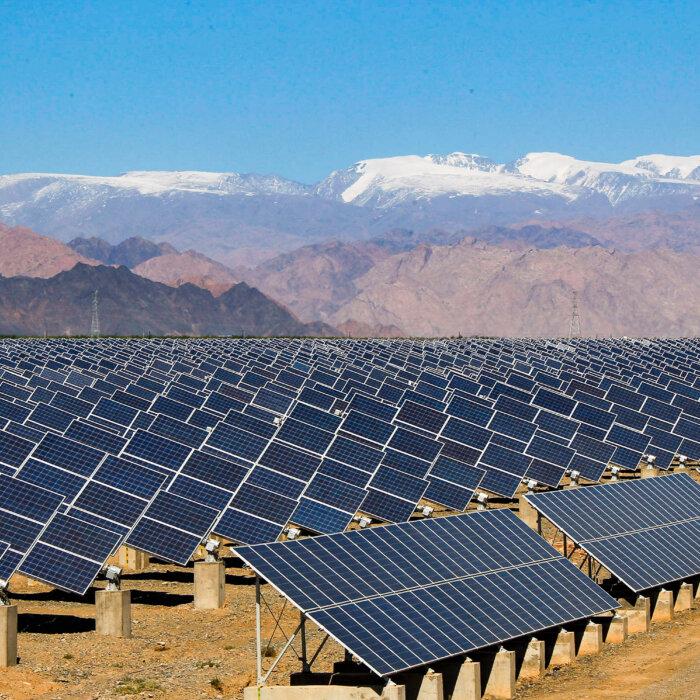A peer and human rights campaigner has urged the government to ensure that renewable energy supply chains are free from modern slavery, warning that Chinese solar products are “badly tainted” by Uyghur slave labour.
Crossbench peer Lord David Alton of Liverpool made the remarks in the House of Lords on Dec. 3 as peers continued to scrutinise the Great British Energy Bill, which will establish a new, publicly funded green energy company.
The peer said that the Chinese communist regime “has a stranglehold on the renewables supply chain.”
He added that a large proportion of solar panels are made using polysilicon from China’s Xinjiang region and is tied to the forced labour from Uyghurs, the ethnic Muslim minorities who live in the province.
Alton told his fellow peers, “The conundrum is that we appear to need Chinese solar to meet our climate targets, but Chinese solar is badly tainted, as I have described, with modern slavery.”
He added that the Chinese Communist Party (CCP) regime is the world’s biggest polluter, “and it uses the Uyghur region as its national hub for oil, gas and coal, fuelling their factories with cheap coal.”
“So, the solar panels of Xinjiang are not only made by slave labour but have a higher carbon footprint than those manufactured elsewhere in the world,” he said.
Net Zero ‘Unachievable’ Without China
The peer added that currently, net zero targets are “unachievable without Chinese-made renewables” and therefore 2030 renewable energy commitments “cannot be achieved without slavery.”“What is clear is that if democratic nations like ours are to achieve decarbonisation, this will need a mix of approaches: developing alternatives not dependent on polysilicon, rebuilding domestic solar supply chains, focusing procurement on companies that have shifted supply chains out of Xinjiang, and developing better tools for reliable sourcing,” he said.
“All this hinges on our Government insisting that they will not be purchasing solar panels from companies that use slave labour, prioritising instead ethical sourcing and labour practices and recognising that such firm action is the way to create demand for responsible production.”
Committed to Tackling Slavery
Responding to the crossbench peer’s remarks, Energy Minister Lord Philip Hunt of Kings Heath said the bill “is not the appropriate vehicle for tackling this issue,” but that the government remained committed to tackling forced labour in supply chains, “including the mining of polysilicon used in the manufacture of solar panels.”Hunt said Great British Energy (GBE) will be respecting human rights under the Human Rights Act and will be subjected to existing provisions in law on forced labour under the Modern Slavery Act 2015 and the Procurement Act 2023.
Under the Procurement Act, which will be fully enforced by February 2025, GBE will be able to reject tenders “where it is aware of forced labour or modern slavery existing in the supply chain,” the peer said.

‘Dumping Ground’ for Slave-Produced Goods
Parliament was previously told of the risks of unethically produced goods entering the market.
Chloe Cranston, Anti-Slavery International’s head of thematic advocacy programmes, told the Foreign Affairs Select Committee that the Modern Slavery Act was “entirely insufficient to address Uyghur forced labour” or “any forms of forced labour around the world.”
Cranston also pointed to goods being reexported from the United States to the UK, after they had been rejected by U.S. customs for failing to provide evidence of the absence of forced labour.







